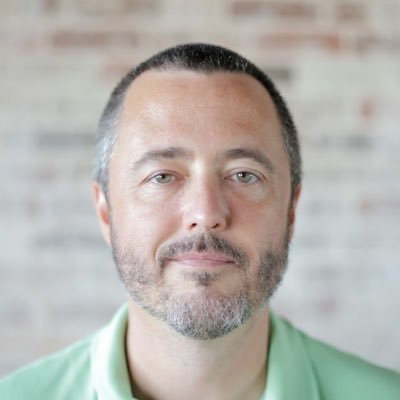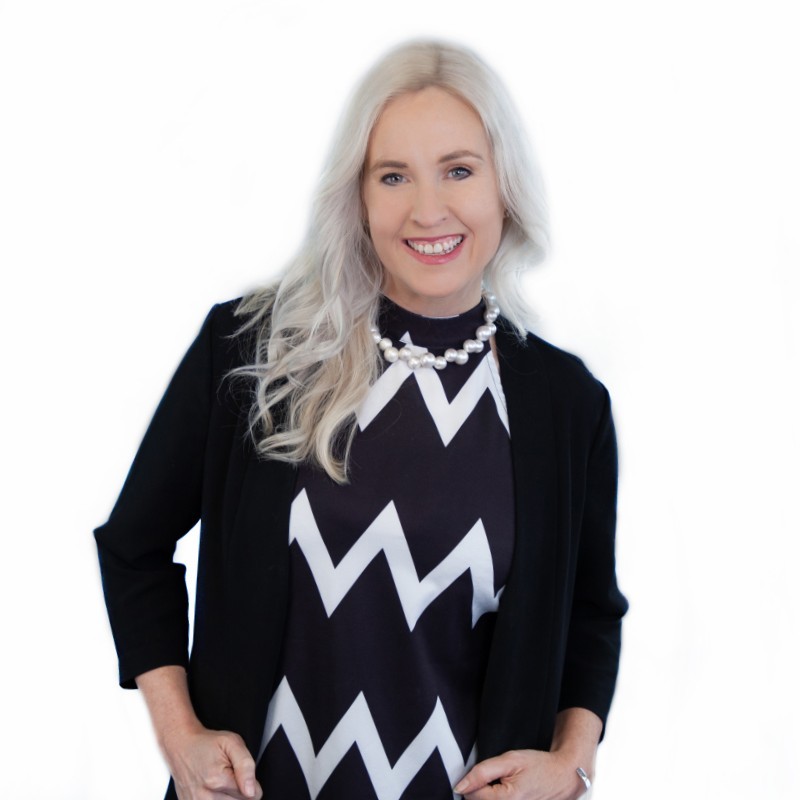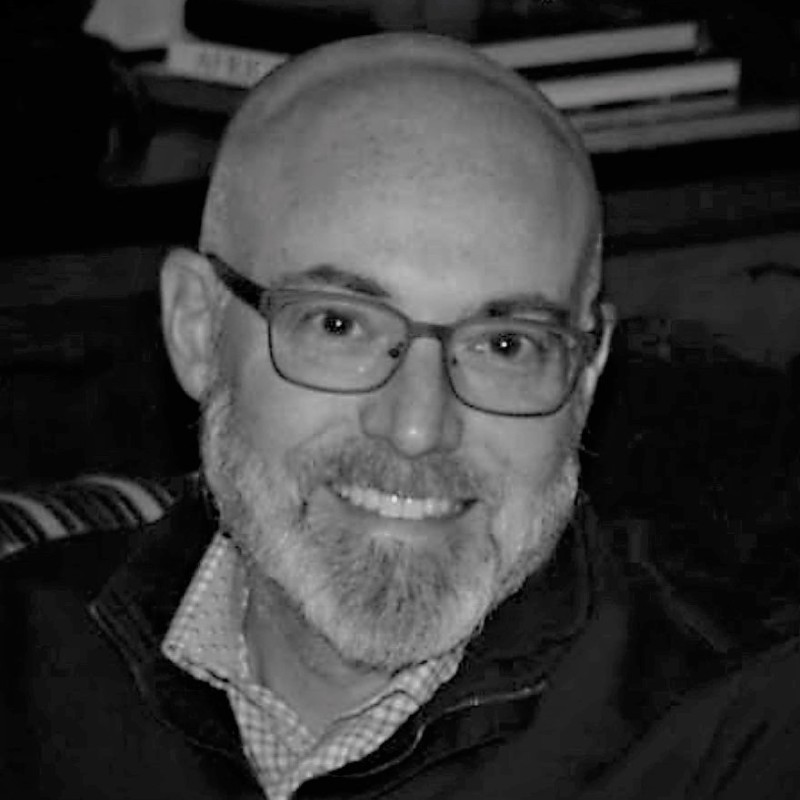
Welcome back to Work Minus, where we talk about what we need to drop from how we work and quick habits you can make today to get closer to the future of work. Today, our guest is Chris Reimer. He’s the author of Happywork and this episode is Work Minus Crappywork. Hi, Chris. How are you?
I am great. How are you doing today?
I’m very excited. I love your book. It gives a lot of details and a lot of exciting things to think through, so I’m excited to ask you some questions. But first, why don’t you give us some background about who you are, both your work experience and you as an author?
First, thanks for the kind words about the book. I always appreciate that. So born and raised in St. Louis, Missouri and went to Marquette University a long time ago, early ’90s, we’ll put it that way, and I got my degree in Accounting and I became a CPA. And so I was a CPA for, basically, 15 years until I decided that that probably wasn’t going to be the direction I wanted my life to go. It’s kind of a weird conversation to have with your wife at age 39, that you want to change careers. And of all things, I wanted to go into marketing which is an odd change for a CPA to make but it was something that I was very passionate about. Long story short, I learned a lot about marketing by trying to gain some visibility and awareness for a t-shirt company that I used to have called Rizzo Tees. And so I just took to marketing like fish to water and especially Twitter, but then beyond that, Facebook blogging, video production, all along the way noticing how I had felt at each one of my jobs, both the good ones and the bad ones, and just kind of gained an interest in workplace culture and workplace happiness, and wanting to find ways to actually be able to shape that at the places where I was at.
And as a CPA, it’s kind of a weird thing to bring up. In marketing, it’s a little bit more of a natural fit. You know, you want to be able to market the organization, have people want to work there, want to be able to buy the product. So I decided that there was a message that I had to get out and that was the genesis of the book. Right now, I am associate director of new media at Maryville University in St. Louis. And so here, I manage all of our video production in our social media output. And as a side gig, I just started a company called Boosatech, which is manufacturing and selling power banks, portable phone chargers. So as I am constantly running around burning two phones down to near 0% every day on business and I’m one of those total nerds that has two phones, but it actually has really worked for me. Burning the phones down to like 1% each and every day, it seemed like a natural business to get into. I actually just launched that last week so brand new, got a bunch of inventory home. It’s kind of fun and scary at the same time. But I’m excited about it.
So getting out of the CPA role, you’ve really jumped into this next phase full force. I mean you have all sorts of new businesses going on, you’re working at university, doing marketing. That’s a big jump.
Definitely. It’s kind of fun to be able to come in and do marketing, but also kind of have the financial sensibility that, no offense to my marketing brothers, a lot of marketing people don’t always have that financial sensibility. So I kind of come at it from a left brain and a right brain point of view. I’ve been told that’s kind of unique. I definitely am better at this than I would ever was at being a CPA. I passed the CPA exam. It’s one of the hardest professional tests out there. It’s like a nightmare. That is still like my recurring nightmare that I have, is that they lose their results of the CPA exam and, clearly, that I would have to retake it. It clearly means nothing anymore because the only thing I touch is our checkbook and our taxes, when it comes to accounting. I shake when I receive a spreadsheet at work. That’s my old life. But, yeah, this is something that I’m just more passionate about, telling stories, trying to change people’s opinions about wherever it is I’m working or whatever project I’m working on. It’s just something that it gets me up in the morning.
Great. Well, let’s get to your book. You painted one of the worst pictures of a company I’ve ever read about, for sure. Very explicit examples of how this fake company — it’s a business parable, and how this business company has really declined into the worst parts of work. I got to ask. All that is fictitious, right? You’ve never experienced anything like that before?
So I want to tell all of your listeners that I am actually one of the lucky ones. I have never worked at a place exactly like what you’re going to experience at Happywork. The name of my fictitious company is Vunorri. If anyone’s wondering I came up with that, it was a random name generator. And then I checked it against SEO and there weren’t a lot of results. I’m like, hey, I can own this. But it is kind of a combination of a lot of things that have happened to me at different jobs. You’re correct to know that it seems like a very horrible place to work. I was attempting to put the reader as a potential employee into The Seventh Circle of Hell. And so I really wanted to make it as bad as it can be out there. There are companies like this, even though you might not want to believe it. But a lot of the stories that are in the book do come from personal experiences, with names changed. And also, though, when I ran out of ideas, I actually went to Facebook and talked to my friends. So right in the middle of writing the book, I’m asking them, share with me some of your worst work experiences. And I have to tell you, real life trumped my imagination almost every single time because you’re sitting there as an author. I’m not a writer by heart. I just told you I was a CPA. It’s like the opposite of being a writer and good at English, and all that stuff. And I’m thinking, I’ve been in these places, but what was it like? What happened to me? Okay, I’m out of ideas. What can happen next to someone? And then someone would post on Facebook and I would just be like, no way! Yes! That’s going in the book, with your permission, of course. And they’d say, please change the names and I would do that. So yeah, real life trumped my imagination every time and that actually is a little scary to me, that I was having trouble dreaming up the worst, and yet it was actually happening to friends that I had.
Wow. Well, I do appreciate you mentioning the name change because the one of the key villains is named Neil, my name. So I appreciate you making that clear that it’s not anyone real, right?
Neil, I don’t want you to think this personally and I’ve never seen you, so I don’t want to get too personal here. But I will say that when I was coming up with my CPA character, and I don’t want to ruin it for any of your listeners, if you happen to buy my book, available at bookstores everywhere, of course, he’s not the best CPA. Even I was better than him. And I tried to create someone, I tried to paint a picture of a kind of lazy, slovenly character, and then I thought, what’s this guy’s name going to be? And I just think I’m going to stop talking now.
No. It fits. It’s perfect.
Neil, I’m sure you’re a picture of health and nothing like the Neil in my book, please.
Thank you so much. Well, a lot of the book you talk about, especially in the early parts, you talk about stress. You talk about how bad stress is in a work environment. Why is stress such a big cause of a crappy work experience?
So one thing that I’ve taken away from a lot of the experiences I’ve had that have been stressful, and I’m sure your listeners can relate to this is how, actually, out of control you feel when you’re upset. And one place this happens, unfortunately, more than any is when I’m doing something or dealing with my kids. You can get really, really upset. It’s like, these are your children. You absolutely love them to death. I have almost lost my faculties. I’m almost out of control just because I’m so upset. It is very difficult. And then that’s the perfect time when someone comes in and tells you to relax, which is the last thing that would ever work in that situation. You can’t tell someone to relax when they literally cannot settle themselves. So the thing with stress, and it’s actually a chapter titled Work. I think I called it Work as a Cortisol Nightmare. So Cortisol is known as the stress hormone, and in various situations that can be released into your body and has all sorts of deleterious effects your health. For women, it’s actually very very much not good for their pregnancies, which seems like a nightmare since we should all want everyone to have healthy babies so they can grow to the next generation of great people. And for everyone else, it’s a matter of just having all sorts of really unfortunate health effects.
My understanding is that these hormones are getting a release in sort of, like I said, stressful situations, fight-or-flight situations. I mean, this is in our biological coding. This is coming from the time when we were having to fight off bears for survival and stuff like that. The bears aren’t an issue anymore. Now, we’re going to work and our workmates can often present the threat to us, the threat to our livelihood, the threat to our sense of significance, our ability to make a contribution to society, which is important whether you realize it or not. So it’s not that work is always going to be easy. So I get this question a lot, oh, you just want unicorn, rainbows, and utopia and stuff like that? It’s like, no. I understand that there’s going to be struggles, sometimes. There’s a store that will be unperforming, or you’ll hire the wrong person and it’s just not a great culture fit. These things happen. Challenges will always come up. It’s a matter of being able to band together and live based on a series of ideals that will let you get through these difficult situations, with a minimum of unnecessary stress.
Let me pick up on the term you use, culture fit. In terms of happiness at work, do you feel like there’s different definitions of happiness for different organizations? So you might you might fit in one place but not on another, even though the happiness is there for both.
That’s a really great question. I’m not even sure I have ever been asked that before. Well, what’s interesting is, I think Simon Sinek talks about this in some of the various gigantic TED talks that he’s done, basically the idea that you can take someone who is like a model citizen when it comes to work and put them into a very very unfortunate work situation, and more often than not, their behavior will devolve into crappy work. It will turn into that which they are surrounded by. And conversely, you can take someone who perhaps has been a work bad apple of sorts and you can bring them into a very positive work environment, with a great culture, a mission that’s clear, people who are decent and yet will hold you to a standard and will force accountability upon everyone. That bad apple will turn into something not so bad. And so, to me, that’s just very telling, and I’ve felt that as well. I’m working now at Maryville University, probably, doing some of — I mean, this is the happiest I’ve ever been at work, to be honest, probably doing some of my best work. The job I had right before this, I was pretty much the same person, minus a few years of experience. And I’m using many of the same ideas here and definitely the same philosophy on communication, and social media, and human interaction online and such. It completely did not work there. And it was like a cult that I wasn’t a member of. And then you come to Maryville. Here, it’s completely different. So there are definitely different kinds of culture that different people will thrive in. When I think back to the last job, I’m not totally sure who thrives there except, perhaps, the cultists who drink the proverbial Kool-Aid.
So your question is a good one. I think that you can have, definitely, different types of people who are going to fit in certain situations. I mean, you’re not going to find me at a very large organization or one that there’s going to be just countless hours of work, like a startup environment or anything like that. I figured out pretty quickly that that sort of thing was not for me. So everyone will have a certain type of job that they will probably thrive in. The challenge or potential tragedy of it is, will they find it in time? Will they know what they’re looking for? Will they have the upward or even sideways mobility to go and get that job, the confidence to leave a job that’s comfortable but maybe offering them nothing in the form of workplace fulfillment or happiness? And the thing is, if I don’t get a chance to say this, I’ll say it now. As human beings, our work means more to us, I think, than we realize. We think that mostly it’s about having a family, and having great friends, and having some hobbies that are fulfilling or something that we enjoy. The fourth bucket of time, which is work, is the one that so many people, especially Americans just kind of shrug their shoulders and say, oh, it’s work. What do you expect? It’s just a job. But we can have the same high standards that we place on those first three buckets, family, friends, and personal pursuits. We can apply the same high standard to work and not put up with this anymore, and have the courage to go and find something new, or have the courage to stand up for what you believe at your place of work. So when you model the behavior that you want to see others displaying, pretty soon it’ll start to happen. Does that make sense?
Yeah. Yeah. Absolutely. And it leads me to my next question which — we’re talking about the future work a lot, which often brings in this whole AI revolution that’s coming in. We’re looking at an age when you don’t have CPAs anymore because that’s all automated, we figured out how to program that. We don’t have a warehouse team anymore because that’s all done by robots. Where does that fit into this this idea of finding fulfillment with work if work, maybe, isn’t there for a lot of people?
I think that this type of questions kind of projects the notion that there are going to be less jobs in the future, and I’m not sure that that’s so. There have been — here in the United States, productivity as in all-time high, which means that companies are as optimally staffed as they’ve ever been, which should mean — I mean, not to mention, perhaps there’s more economic production than there’s ever been but there are a lot of jobs that really don’t exist anymore. But there are a lot of factory jobs that have been — factories run by 20% of the people that they used to and yet unemployment is actually incredibly low right now. So there are possibilities that the type of jobs that are going to be important in the future really exist yet. I, for one, am not only keen on the idea of a robot stories, which is kind of what I do. They do exist. I think The Associated Press uses some of technology in order to create stories and some of them are readable, if not perhaps a little bit lacking interest. But they’re readable. And, perhaps, I’m not going to have a human CPA in the future. But what we don’t have enough of right now are cyber security people. I mean, if you watch the news, you can know everything you need to know about that. So cyber security people encoders. So there are a lot of jobs that are going to — if you’re a truck driver today and you’re not going to be a truck driver in ten years, there’s an extreme possibility there’s going to be another kind of job that, with some training, you’re going to be able to do. So I think that there’s still plenty of opportunity in the future to find work that we will be happy doing and that we’ll feel fulfilled when we do it.
So do you feel like the pursuit of happy work becomes even more important as we switch these roles and switch these jobs or does it become like it’s just going to become standard and it’ll just always be there?
I would say not more important than it is right now. I think that it’s kind of an aside from happy work or crappy work. But people, I think, probably are going to kind of have to strap in and accept and brace for the change and realize that if you’re driving an 18-wheeler right now, it’s possible that job won’t be there in the future. And as another huge aside what people are going to have to get used to or is the notion that instead of a 5% chance of being in a fatal car accident caused by a human who’s making choices behind the wheel, you might have a .05% chance of getting killed by a computer. And the fun thing that we’re going to deal with is like, which is better? The lower number or the one where we all feel like we’re in control. If nobody caused the fatal accident, how are we supposed to feel about that? So I think there’s a lot more that we’re going to have to deal with this as technology sort of — as we superimpose technology over everything that we do, there’s a lot more than we’re going to have to worry about, like morally and decision-wise, then how can we be happy at work? I would say that though over the last 50 years, we’ve definitely kind of woken up to the idea that, hey, work doesn’t have to be like a slog. It doesn’t have to be always boring or just working on the Henry Ford assembly line.
Yeah. Yeah. Absolutely. A lot of people out there listening are part of good companies, ones that have been around for a while or their teams are well-functioning. But a lot of times, you don’t realize when you’re on that slope down towards crappy work, away from happy work. So give us a couple of early indicators that might show that people are on the way they should watch out for.
The first thing I would say, honestly, is if she has good instincts, is to trust them. So the one place where there is going to be a struggle for certain people is, depending on where you’re at in the company, you’re not going to have like a global picture of what’s happening at the company. It’s funny, I’ve always looked at folks who they’re really curious and want to know what’s going on all around the company. I’ve always looked at that kind curiously. Like, what does it have to do with what you do? But probably what people are trying to do is they’re seeking patterns, trying to understand humans are pattern-seeking animals. So we want to know, we’re trying to assess out what’s going on around us, and whether it’s a good thing or a bad thing. And it’s honestly, probably, part of our survival instinct to actually come to work. If there is it, if there was a place that you could start –and if you read my book, you’ll read some things that I say, like, money does not buy happiness, which is super cliché at this point but I kind of go into in depth. And I believe it.
But I will say, man, one place you could look first is if performance is slipping, because, what they say in sports, winning cures all. It is true. If a team is winning, you’re completely undefeated, you’ve got a 10 game winning streak or whatever, man, there’s a lot of problems that are getting swept under the rug. Knowingly or unknowingly, not a big deal. When you’re losing, people start getting to each other’s throats a little bit. So if performance starts to slip and layoffs begin to happen due to either true structural changes or just trying to hit quarterly numbers, not only are you going to see those numbers change, but you’re going to see people change. It’s a rare occasion when the numbers start to slip and human civility doesn’t start to slip at the very same time or near to it. I would say, definitely, that money, believe it or not, is a decent indicator of what a company’s future might hold.
Beyond that, I talked about teamwork profit and purpose. I think, also, people at work have never, to this point I don’t think, spent enough time trying to understand what the purpose is of what they do. There’s the super famous line in Caddyshack, when they’re walking down the Fairway and Judge Smails says: The world needs ditch-diggers too. I can’t make a case for why it’s fun to be a ditch-digger, but the greater point is to think, an interesting place is actually baristas. I used to work at a coffee company and it was funny how these baristas, so many of them, you could tell they didn’t want to do it anymore. And I think it was because perhaps they didn’t get paid very much. But I always looked at their work as an art form, especially if you order a latte and they make the little art on top. Even if I wasn’t going to do it full-time, the way I would look at my job as a barista is one, of being an artist and two, I don’t know if you’re like me, but I’m drinking coffee 365 days a year. There is not a day that I don’t drink coffee. I just couldn’t. I couldn’t do it. I’d melt into a puddle of goo. So it’s really important to me that I have my coffee. And so now, whoever’s giving me the coffee is important to me. There’s a way for most people to find purpose in their jobs. If you’re at a place and you’re having trouble finding any purpose whatsoever, it could be time to massage his LinkedIn profile, a little bit. And then, obviously too, teamwork is really important. It can be pretty clear if you just kind of keep your antennas up as to whether you’re working on a good team, an average team, or a crappy team.
Great. Well, Chris, why don’t you wrap up this show for us by telling us a little bit about what it means to live in a world of work minus crappy work? What does that mean for you? Paint us that picture.
Yeah. For me, going to work in the morning because you want to — and I’m kind of this like entrepreneur on the side, maybe someday I’ll be a full-time entrepreneur. But right now, I work for someone and I’ve worked for someone pretty much all my life. I can tell when it’s going well because I want to get up and I want to get to work and I want to accomplish something. But more importantly than that — and Bob Chapman talks about this in his book Everybody Matters, really important. He’d be a fun guest to have, as well. He actually corrects me when I say this, my definition of it was I want to be able to have just enough gas left in the tank to be able to go home, and be a good father, just be a good spouse, and just be a good person. I don’t want to be running on empty. He actually corrects me and says, I want you going home energized. Like, okay, Bob. You’re definitely drinking more coffee than me if you don’t have this issue. But for me, I didn’t want to be — beggars can’t be choosey. I just want something left in the tank. And I’ve had jobs word there’s nothing left in the tank and I go home and I’m not a nice person to the people I love. This is not okay. So at that point, I take stock in the fact that I am experiencing crappy work and I need to minus that out of my life. And I feel so fortunate. I’m, at this point, take this with a grain of salt, I’m really good at looking for jobs and I’m good at getting them. I’ve been at Maryville for over three years. I plan on staying here for a long time —
— in case they’re listening.
Of course. I love what I do. And every single day now, especially after having written a book called Happywork, I’m taking stock in that each and every day and I’m realizing that I can go home at night and I’ve still got plenty left in the tank to be a good person to my family.
That’s great. It’s a great summary of what you’ve been talking about. The book is wonderful, Happy Work. Check it out. Buy it anywhere they sell books. What else can you tell us, Chris? How can we be in touch with you?
Yeah. Thanks, again, for having me on the show. So my book is most definitely available on Amazon. So search Happywork. It’s one word together, happy and work pushed together. So it’s one word. The new company I’ve started is called Boosatech.com. I’m shipping power banks here in the United States. I would love for your listeners to go and check that out. And then if you want to talk to me on Twitter, I’m @ChrisReimer.
Well, thanks, Chris. It’s been great to have you on the show and we appreciate what you’ve done for us. Thanks a lot.
Neil, thanks again.












